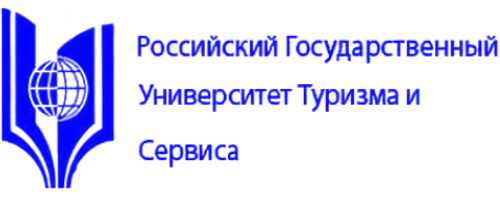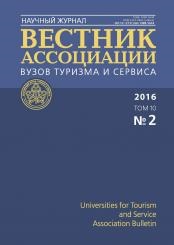Moscow, Russian Federation
Moscow, Russian Federation
Today interactive methods are increasingly used along with traditional teaching methods in higher education. The use of interactive technologies contributes to the active involvement of students in the learning process, promotes the awakening of their cognitive and creative initiative, forms their teamwork skills, ensures the formation of critical thinking, analysis and self-analysis skills, and promotes the development of students' communicative competencies, including those related to future professional activities. Practical exercises in the format of business or role playing games contribute to the effective solution of these tasks. The game is a special kind of interaction, during which a certain fragment of real life is simulated, with the subsequent freedom of activity for the participants of the game. Creating and running a role-playing game is a complex process that requires a preparatory stage, including the writing of a game scenario, a clear distribution of roles between participants, the actual running of the game itself and the stage of reflection, analysis of the achieved results, and the mutual and self-evaluation of the players' activities. The authors share their experience of a business game in form of a job interview on the subjects on "Ethics in business communication", on "Business Russian language", and "Russian language and culture of speech." The article describes the technology for preparing and running a business game, and gives detailed recommendations on how to use it. Thus, the authors of the article with their own pedagogical experience confirm the fact that the business game is a demanded method of interactive learning, which allows activating cognitive activity of students, and contributes to the formation of business communication skills and the personality of a future specialist.
interactive methods of teaching, simulation of professional situation, business game
1. Bazilevich S.V. , Brylova T.B., Gluhih V.R., Levkin G.G. Ispol'zovanie innovacionnyh i interaktivnyh metodov obucheniya pri provedenii lekcionnyh i seminarskih zanyatiy // Nauka Krasnoyar'ya. 2012. № 4 (04). S. 103-112.
2. Burgat V.V. Delovaya igra kak metod aktivnogo obucheniya // Sibirskiy torgovo-promyshlennyy zhurnal. 2014. № 1(14). S. 48-50.
3. Vasil'eva T.S. Delovaya igra kak metod aktivnogo obucheniya studentov // Vestnik MGU. 2013. № 1. S. 153-156.
4. Verbickiy A.A. Delovaya igra kak forma kontekstnogo obucheniya i kvaziprofessional'noy deyatel'nosti studentov // Pedagogika i psihologiya obrazovaniya. 2009. № 4. S. 73-84.
5. Vygotskiy L.S. Igra i ee rol' v psihicheskom razvitii rebenka. SPb.: Karo, 2001. 327 s.
6. Dvorkovaya M.V., Kurenkova E.A. Obrazovatel'naya igra kak sovremennoe napravlenie razvitiya aktivnogo obucheniya // Istoricheskaya i social'no-obrazovatel'naya mysl'. Krasnodar. T. 8. 2016. № 1-2. S. 191-195.
7. Dvulichanskaya N.N. Interaktivnye metody obucheniya kak sredstvo formirovaniya klyuchevyh kompetenciy // Elektronnoe nauchno tehnicheskoe izdanie «Nauka i obrazovanie». 2011. № 4. [Elektronnyy resurs]. http://technomag.edu.ru/doc/172651.html (data obrascheniya: 15.03.2017).
8. Zamyatina O.M. i dr. Tehnologiya proektno-orientirovannogo obucheniya v inzhenernom obrazovanii / O.M. Zamyatina, P.I. Mozgaleva, M.A. Solov'ev, L.A. Bokov, A.F. Pozdeeva // Vysshee obrazovanie segodnya. 2013. № 12. S. 68-74.
9. Zmazneva O.A., Isaeva N.V. Opyt vnedreniya principov proektno-orientirovannogo obucheniya v obrazovatel'nye programmy obschegumanitarnogo modulya (na primere programmy discipliny «Russkiy yazyk i kul'tura rechi») // Tambov na karte general'noy: social'no-ekonomicheskiy, sociokul'turnyy, obrazovatel'nyy, duhovno-nravstvennyy aspekty razvitiya regiona: Mater. Vseros. nauchn. konf. Michurinsk: MGAU, 2016. S. 223-226.
10. Ivleva M.L., Saenko N.R. Osobennosti primeneniya keys-metoda v kurse «Pedagogika i psihologiya vysshey shkoly» // Vestnik Associacii vuzov turizma i servisa. T. 9. 2016. № 2. S. 59-67.
11. Kryukov M.M., Kryukova L.I. Principy otrazheniya ekonomicheskoy deystvitel'nosti v delovyh igrah. M.: Nauka, 1988. 205 s.
12. Orinchuk V.A., Tuvatova V.E. Praktika primeneniya innovacionnyh obrazovatel'nyh tehnologiy v vysshey shkole // Professional'noe obrazovanie v Rossii i za rubezhom. 2014. № 4 (16). S. 137-140.
13. Cherkasov M.N. Innovacionnye metody obucheniya studentov // XIV Mezhd. zaochn. nauchno-prakticheskaya konf. «Innovacii v nauke». Novosibirsk, 2012. S. 124-128.
14. Chernovol M.P., Chirich I.V., Shtukareva E.B. Proektnye tehnologii kak sposob formirovaniya kommunikativnoy kompetencii uchaschihsya mnogonacional'nyh klassov // Vestnik Yuzhno-Ural'skogo gosudarstvennogo universiteta, ser. «Obrazovanie. Pedagogicheskie nauki» T. 6, № 2, 2014. S. 33-40.





